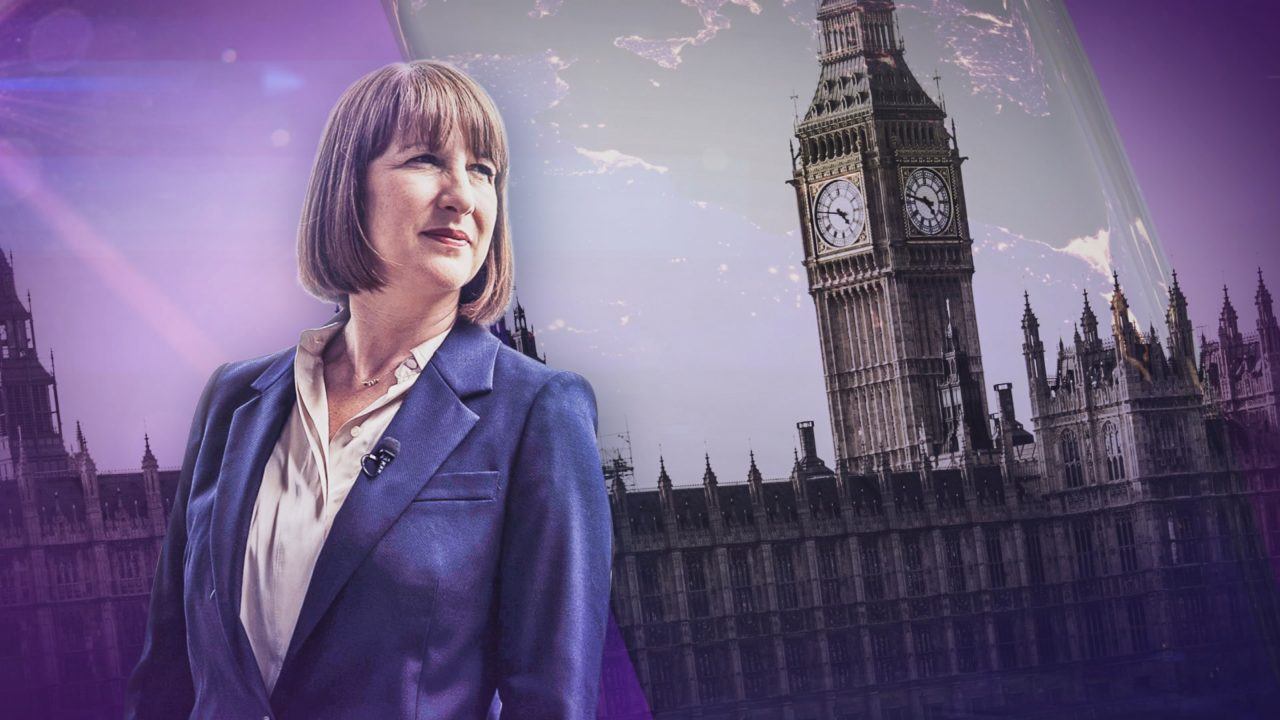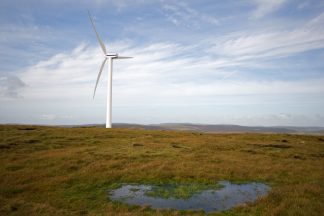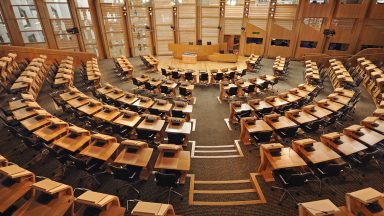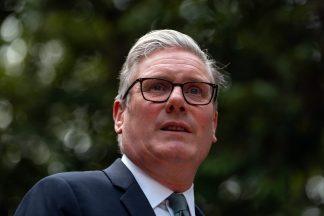“Nothing ever changes in Drumchapel.”
That was the verdict of one passerby, who came over to chat as we were filming last week at Drumchapel Shopping Centre. It sounds pessimistic, but unfortunately, he may have a point.
The area of northwest Glasgow, one of the city’s big postwar estates, struggles with high levels of deprivation. Under the last government’s Levelling Up investment programme, Glasgow City Council won £15m to help redevelop the centre of Drumchapel, in a bid to combat some of those problems.
But when Labour took power earlier this year, all Levelling Up funding was put under review along with dozens of projects worth tens of millions of pounds across Scotland, and many more around the UK. Their future is uncertain.
Drumchapel Shopping Centre now stands a physical monument to the challenges facing the Chancellor as the first UK Budget under a Labour government in almost 15 years approaches.
Other symbols are harder to see. Outside a supermarket in Paisley, a trio of vans are lined up, being loaded with groceries.
They belong to the charity Food Train, and most of the people loading them are volunteers. Food Train has been running for over a decade, delivering messages to elderly people who aren’t able to shop for themselves.
Around a hundred elderly people in and around Glasgow receive weekly deliveries. Food Train is already a lifeline for many of them – it ran throughout the Covid lockdowns, and keeps its members stocked up over the Christmas holidays too.
“If we didn’t take the time to speak to our customers, to get to know them, then we’d be missing out, and so would they,” explains volunteer Eddie, who I joined for a delivery.
“For some of them, this could be the only meaningful social contact they get in the week.”
Increasingly, though, the Food Train team are discovering that the challenges their users face aren’t just about isolation.
Since the start of the cost of living crisis – a spike in inflation triggered by the reopening of the economy at the end of the pandemic, and the Russian invasion of Ukraine – prices have risen by around a third.
The fact that inflation is now back below the Bank of England’s target level means prices are under control, but costs certainly haven’t fallen. In fact, energy bills are increasing again as we head into winter, albeit not by as much as previous years.
Food Train members have cut back, and swapped branded products for supermarket saver lines. Eddie has also noticed that the homes he visits are colder than they used to be – and that’s before most pensioners lose their Winter Fuel Payments this winter.
Helen is one Food Train user in that position. She is so grateful for the weekly deliveries, and says she’s gotten to know Eddie so that a visit from him is like a visit from family.
She’s lived alone since her husband passed away, and has used Food Train since a heart attack left her with limited mobility.
Helen describes cutting her food bill as other costs like rent and energy have risen. Her heating is on when we visit, but she has friends who are also losing their Winter Fuel Payment and are switching off.
“It all adds up,” she tells me. “And you have to live, too. You can’t just become a hermit, because you’re a pensioner.”
It isn’t just the public finances that were in a poor state when Labour took power. It’s been a difficult decade and a half for everyone – the worst for living standards in history, according to official figures. Spending cuts, pay freezes, and benefit caps have all played their part.
Coupled with the recent rise in prices, it’s made life increasingly difficult for those on the lowest incomes. Child poverty rates have been stubbornly high, and are edging upwards – nearly one in four children live in poverty in Scotland, and that’s after the impact of the Scottish Government’s Child Payment. The figure is even higher elsewhere in the UK. Pensioner poverty is less widespread, but it’s just as persistent, and is also now headed in the wrong direction.
The UK Government says its Budget on Wednesday will reverse austerity, even though some departments have already been asked to make cuts. Rachel Reeves says she will bend her own borrowing rules, and raise some taxes on companies and people with assets, to unlock investment in public services. That should release some extra cash for the Scottish Government through the Barnett Formula, too.
But pensioners have already been told that the Winter Fuel Payment will be means tested, removing it from most recipients, and families in poverty already know the two-child cap on benefits will stay in place. That’s despite reversing the two-child cap being identified as the single best way of lifting children out of poverty across the UK.
Anti-poverty campaigners say there could still be help for the worst off at the Budget, if Rachel Reeves increases Universal Credit. The UK Government insists that pensions and the minimum wage are rising, and it has launched a child poverty task force.
It might not be immediately possible to see whether the Budget helps those living on the margins. But people living in Drumchapel will know for certain whether anything changes on their high street.
Follow STV News on WhatsApp
Scan the QR code on your mobile device for all the latest news from around the country
























